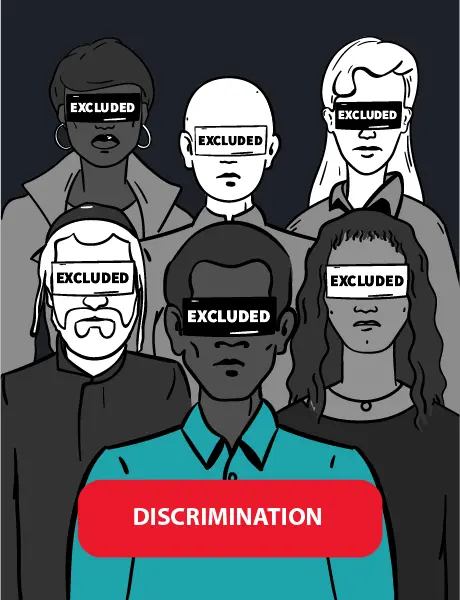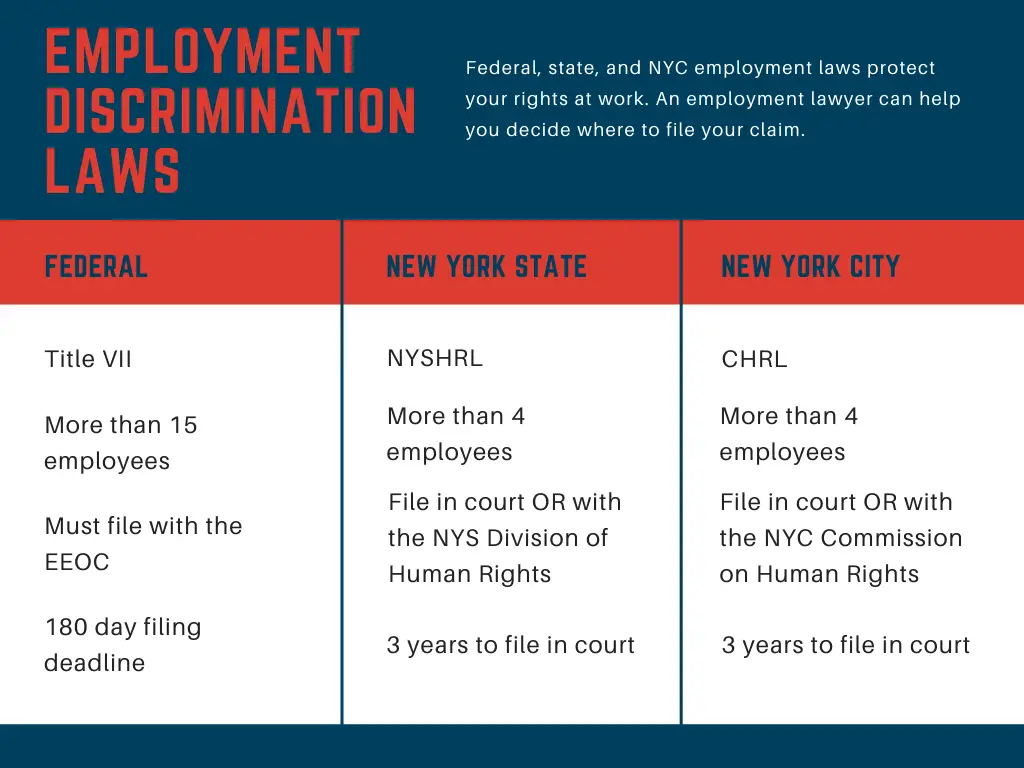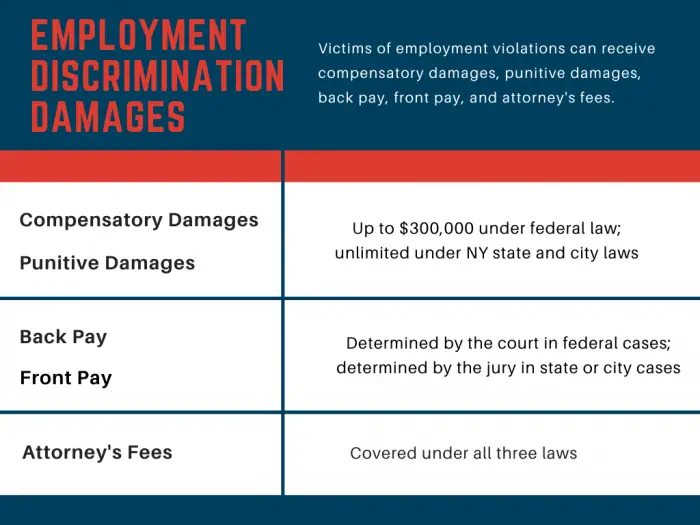Religious Discrimination in the Workplace
Protect Your Rights with a Religious Discrimination Attorney
Have you experienced religious discrimination at work? Religious discrimination violates your rights.
Our guide walks through your rights under religious discrimination laws and how to prove religious discrimination at work.
If you experience religious discrimination in the workplace, a religious discrimination attorney can help.
Contact New York discrimination lawyer Charles Joseph for a free consultation to protect your rights. Charles Joseph’s firm has recovered more than $200 million for clients. Reach out today for a free, confidential consultation.

- Know Your Rights
- Examples of Religious Discrimination in the Workplace
- Reasonable Accommodations
- Disparate Treatment
- Discriminatory Policies
- Hostile Work Environments
- Exceptions to Religious Discrimination Laws
- What To Do About Religious Discrimination
- Legal Protection Against Retaliation
- How To File A Claim
- Remedies for Religious Discrimination
Know Your Rights: What is Religious Discrimination?
Religious discrimination means unfavorable treatment because of religious beliefs or practices. It includes refusing to hire someone because of their religion, firing an employee for celebrating religious holidays, and refusing to promote an employee based on their religion.
It is illegal for an employer to make employment decisions based on your religion.
Employers cannot make employment decisions based on your religion – or lack of religion – instead of your skills or how well you do your job. This includes decisions about hiring, firing, discipline, distribution of benefits, promotion, compensation, job training, or any other condition of employment.
New Yorkers are protected from religious discrimination in the workplace under Title VII of the Civil Rights Act of 1964 (Title VII), the New York State Human Rights Law (NYSHRL), and the New York City Human Rights Law (CHRL).
The law doesn’t just apply to organized religions.
Religious discrimination laws protect members of traditional, organized religions like Christianity, Judaism, Islam, Buddhism, and Hinduism. It also protects people who have sincerely held religious, ethical, or moral beliefs, as well as those who profess no religious beliefs.
Under the law, “religious beliefs” include theistic beliefs as well as “moral or ethical beliefs as to what is right and wrong which are sincerely held with the strength of traditional religious views.”
However, courts generally exclude social, political, or economic philosophies, as well as personal preferences, concluding that religion typically concerns “ultimate ideas” about “life, purpose, and death.”
Religious discrimination laws cover non-employees.
The law does not just protect employees. After October 11, 2019, New York State’s discrimination laws expanded to cover nonemployees, such as domestic workers, independent contractors, consultants, vendors, and subcontractors.
A religious discrimination lawyer can determine whether these laws apply to your situation.
Examples of Religious Discrimination in the Workplace
Employment Decisions Based on Religion can be Illegal
Making employment decisions – including hiring and firing – based on religious beliefs or practices violates the law. However, religious organizations are generally exempt from this provision.
Examples of religious discrimination in the workplace:
- You apply for a job for which you have experience and excellent qualifications. However, the hiring manager says the company can’t hire you because some of the company’s long-time clients are not comfortable dealing with a Muslim in that position.
- You are told that you are being laid off due to company cutbacks and reorganization, but the only employees let go are you and another employee who recently converted to Judaism. All the other non-Jewish employees keep their jobs.
- You have a record of positive evaluations at your job, but when you tell your employer that you have recently joined an evangelical Christian church, you are fired.
Discriminatory Promotion Decisions Can Violate The Law
Laws against religious discrimination also protect employees from not receiving promotions, including tenure, because of their religion or affiliation with someone of a particular religion.
Examples of religious discrimination in the workplace:
- You have worked for your company for several years, receiving exemplary reviews and an employee-of-the-year award, but when you apply for a promotion, your Christian supervisor denies your promotion because he wants to promote a fellow Christian employee instead of a non-Christian.
- You are a teacher on a three-year tenure track at a public school. You have always received excellent performance evaluations. However, as your tenure review draws near, your boss questions whether you are a good fit for the school because you are an atheist. You are denied tenure.
Wondering if you experienced religious discrimination? Reach out to a religious discrimination attorney today to find out.
Reasonable Accommodations
Employers must provide reasonable accommodations for an employee’s religion or religious practices.
The law requires employers to reasonably accommodate the religious beliefs or practices of employees unless this would cause more than a minimal burden on the business. This includes accommodations for dress and grooming practices.
Examples of reasonable accommodations:
- The employer maintains a dress and grooming code that states employees must leave their heads uncovered. A Muslim employee requests an exception to wear her headscarf.
- A Christian employee who is not affiliated with one particular denomination requests Sundays off to accommodate his religious beliefs that prohibit working on his Sabbath day.
- A private company opens its weekly staff meetings with a group prayer. An employee who is an atheist asks to be excused from the religious portion of the meeting.
However, employers do not have to provide accommodations that would cause undue hardship. For example, accommodations that are costly, compromise workplace safety, or decrease workplace efficiency may not be covered by religious discrimination laws. Similarly, accommodations cannot infringe on the rights of other employees.
Disparate Treatment
Employers cannot treat employees differently based on religion. Disparate treatment of employees is illegal both when motivated by bias or preference based on religious beliefs and practices. This includes disparate treatment of workplace religious expression.
Examples of disparate treatment:
- When evaluating two equally qualified candidates for a job, the hiring manager decides to choose the Christian applicant instead of the Buddhist applicant, because a Christian will “fit in better” at the workplace.
- An employer decides not to hire a Muslim job applicant because he is concerned that she will request a reasonable accommodation to the dress code in order to wear a headscarf at work.
- Several employees are allowed to display a Bible on their desks at work, while a different employee is told that he should keep his Quran in a drawer because the employer doesn’t want customers to be offended.
- An employer requests that their employment agency screens out applicants who have a name that is frequently associated with a particular religion, such as Mohammed.
Policies With Discriminatory Effects
Unintentional religious discrimination in the workplace can also be illegal.
Job policies that appear neutral can be discriminatory if they disproportionately harm workers of one particular religion in cases where the policy is not job-related.
For example, an apparently neutral policy that requires all male employees to have a clean-shaven face with no exceptions would violate the rights of Sikh employees whose religious practice includes not cutting their facial hair. Similarly, requiring a certain hairstyle could violate the rights of a Rastafarian who has dreadlocks.
Religious Harassment and Hostile Work Environment
You can be the victim of religious discrimination in the workplace even when no employment decision is involved if religious-based harassment has created a hostile work environment.
A hostile work environment can be created by jokes, slurs, or offensive or derogatory remarks about a particular religion or a certain religious practice.
Hostile Conduct Must Be More than Trivial or Petty
New York City has a generous standard for a hostile work environment, which is defined as being treated less well than others because of your religion as long as the poor treatment amounts to more than a “petty slight” or “trivial inconvenience.”
Federal law requires that the conduct be either severe or pervasive. New York State recently lowered its standard so that after October 11, 2019, it no longer requires that discriminatory harassment be severe or pervasive.
It is important to speak up when you witness offensive conduct to make it clear that such comments are unacceptable and unwelcome.
Victims Do Not Have To Be The Targets
It is a misconception that only the target of hostile comments can be the victim of a hostile work environment. You can be a victim even if you are not the person being targeted by the offensive behavior––and even if you are not a member of the targeted religion.
If the offensive behavior is affecting your ability to do your job, you may have a claim.
The Offender Does Not Have To Be Your Boss
It is a misconception that only your boss can create a hostile work environment. Employers have a responsibility to prevent religious discrimination in the workplace. A co-worker, a supervisor in another area of the company, or even a non-employee, like a vendor, can be the perpetrator.
Exceptions To Religious Discrimination Laws
There are exceptions to religious discrimination protections. Religious organizations and religious educational institutions are exempt from certain religious discrimination provisions.
In addition to this exception, employees who serve in clergy and related roles are barred from claiming religious discrimination under what is known as the ministerial exception.
The law defines religious organizations as institutions whose “purpose and character are primarily religious.” These organizations are allowed to give employment preference to members of their religion. The exception does not apply to other forms of discrimination. A religious organization cannot, for example, claim that it cannot hire African Americans, gay or transgendered people, or women due to its religious beliefs.
The ministerial exception is based on the First Amendment principle that the government should not regulate churches, which includes the appointment of clergy. On this basis, religious organizations can refuse to hire women in ministerial positions.
What To Do If You Are The Victim of Discrimination
Discrimination can happen in any workplace. If you think you are the victim of discrimination or a hostile work environment, there are several steps you can take right away. It is important to make it clear that the behavior is unwelcome and keep records to prove that you did.
- Start keeping notes of the discriminatory practices and/or harassment. Be specific in your details—write down the time and place of each incident, what was said and done, and who witnessed the actions.
- Keep doing a good job. Make copies of your job evaluations and any letters or memos that show that you are doing a good job at work.
- Seek support from friends and family, clergy, and, if helpful, a mental health professional. Harassment at work can be very stressful, and it is a difficult thing to face alone.
- Report the incident in writing to your supervisor and human resources department. Tell them about the behavior and the steps you have taken to address it.
- Check your company’s employee handbook. If your employer has a harassment policy in place, follow it.
- Preserve any information such as inappropriate texts, pictures, or voicemails sent to you.
- Put all of your complaints in writing, and keep copies at home.
A religious discrimination attorney can help you prove your case. Charles Joseph offers free, confidential consultations about workplace discrimination.
Retaliation is Illegal
If you complain about religious discrimination in the workplace, it is illegal for your employer to take any action against you.
It is illegal for employers to retaliate against applicants or employees if they:
- Complain about discrimination on the job.
- File a charge with the Equal Employment Opportunity Commission (EEOC) or any state or city agency.
- Participate – including being a witness – in an employment discrimination proceeding, such as an investigation or lawsuit.
You Are Protected From Retaliation Even If There Was No Discrimination
As long as you had a good faith and reasonable belief that discrimination or harassment occurred, your employer is barred from taking any action against you for speaking out or participating in any investigation or proceeding. It does not matter if an agency or court determines that there was no discrimination.
If you speak out about discrimination and harassment in your workplace, the law protects you from retaliation.
How to File a Claim For Religious Discrimination
If you choose to file a claim for religious discrimination in the workplace, you have several options. You can file a complaint with the EEOC, which handles violations of federal law. The New York State Division of Human Rights handles NYSHRL violations, and the New York City Commission on Human Rights is responsible for CHRL violations.
If your claim falls under multiple laws, the three agencies that handle discrimination claims have what is called a “work-sharing agreement,” which means they cooperate with each other to process your claims. There is no need to file a claim with each agency. You just need to indicate that you want your claim “cross-filed” with the other agencies.
Learn how to file a discrimination claim, how to file an EEOC complaint, or contact a New York religious discrimination lawyer for help.
Comparing Religious Discrimination Laws
Discrimination lawyers can file a religious discrimination case under multiple laws. Contact religious discrimination attorney Charles Joseph for a free, confidential consultation today.
Legal Remedies for Religious Discrimination
If you have been the victim of religious discrimination in the workplace, your employer may owe you back pay, damages, and other financial relief. A New York religious discrimination attorney can help you file a claim.
- Back Pay: Back pay is the money you would have earned if religious discrimination had not taken place. It can include wages, bonuses, stock options, benefits, retirement contributions, and more.
- Reinstatement: In cases of wrongful termination, the courts can order your employer to rehire you. Similarly, if you were wrongly denied a promotion, you can receive it.
- Front Pay: Front pay compensates victims of discrimination for future earnings lost because of discrimination. Courts determine the amount needed to return to the same pay level prior to the discrimination.
- Compensatory Damages: Compensatory damages cover out-of-pocket costs like therapy, lost wages, or a job search. It can also include pain and suffering.
- Punitive Damages: Punitive damages punish the employer for not preventing discrimination. New York City law provides punitive damages in cases where employers show negligence, recklessness, or a conscious disregard of employee rights.
- Liquidated Damages: Under certain laws, victims of discrimination also qualify for liquidated damages equal to the amount of back pay owed.
- Attorneys’ Fees and Costs: If you win, the court can order your employer to pay your religious discrimination attorney for his or her work on your case. This includes expert witness fees and court costs.
Potential Damages In A Religious Discrimination Lawsuit
You can also receive emotional distress damages during a religious discrimination lawsuit.
Religious discrimination lawyers can advise you on when to file a case, the strongest evidence, and potential damages. Contact religious discrimination attorney Charles Joseph for a free consultation.


